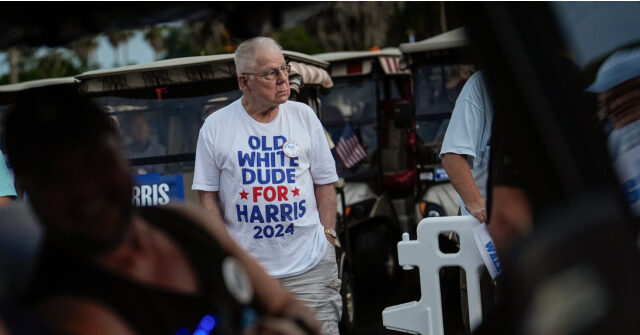In a recent interview with MSNBC’s Al Sharpton, Vice President Kamala Harris implied that black men who do not support her presidential candidacy may be exhibiting misogynistic attitudes. This statement is perceived as a divisive commentary that could exacerbate already-existing gaps in her support, especially among black men, a demographic where she has not seen strong backing. Recent polling data from NBC News indicates that former President Donald Trump has a significant lead among men, including a 16-point advantage, suggesting that Harris’s remarks could alienate potential supporters rather than attract them.
According to a Washington Post/Ipsos poll, only 80% of black men expressed support for Harris, a figure that underscores the challenges she faces in garnering full backing from this crucial voting demographic. An NAACP poll further reveals that around 25% of black men under the age of 50 show support for Trump, suggesting that the former President’s influence within the black community is gaining traction, and Harris’s comments about misogyny may not effectively resonate with men who are uncertain or skeptical about her candidacy.
Harris’s exchange with Sharpton touched upon the contentious relationship between her campaign and perceptions of black male support, asserting that the prevailing narrative about black men’s lack of support for her is misleading. She agreed with Sharpton’s suggestion that the resistance from some men—regardless of race—could be rooted in misogyny. However, this perspective may not sufficiently address the core reasons behind the lack of enthusiasm among black men, limiting her ability to foster a more inclusive connection with them.
Recognizing the urgency of the situation, the Harris campaign recently unveiled an “Agenda for Black Men,” targeting issues relevant to this demographic. The agenda includes proposals for legalizing marijuana, establishing new loan programs, enhancing banking options for entrepreneurs, and expanding apprenticeship and mentorship opportunities. Despite the intention behind these proposals, some members of the black community, such as Georgia labor organizer Ken Wainwright, criticized the marijuana focus as misguided, asserting that it fails to address more pressing concerns in their communities, particularly regarding youth and substance use.
Following the backlash, the Harris campaign pivoted away from solely targeting the black community with their agenda, aiming for a more universal approach. This shift indicates a response to the criticism while also recognizing the need to engage and connect with a broader electorate. However, this adaptation may further confuse her messaging and complicate her outreach efforts as she seeks to unify various factions within the electorate.
Amidst this backdrop, Trump has been framing his campaign message to black voters around the theme of justice and discrimination. He has positioned himself as a victim of systemic injustice, suggesting that his experiences may resonate with black voters who have faced similar challenges. This narrative, which underscores perceived injustices, appears to be fostering a sense of connection among some voters who may see Trump’s plight as a reflection of their own, potentially undermining Harris’s attempts to consolidate support within the black community. The political landscape is becoming increasingly complex as both candidates work to engage this valuable demographic in the upcoming election.

